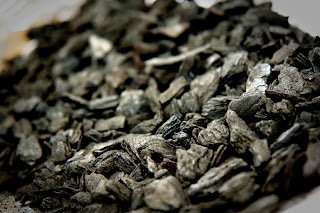Fixing carbon

As with all great stories it began with a potato. Longer than I care to admit, there was a time when I was a young and foolish teenager. Left at home on one of the rare occasions my parents went out, I got it into my thick skull to microwave a potato. Having no idea what to do, the timer was set to a shockingly high 40 minutes. The inevitable result was a dead microwave and a glowing black lump where the potato had once been. It was one of those painful experiences in life that one tries to forget but years later it opened up a line of thought. We need to get the amount of greenhouse gases in the atmosphere down, and fast. Could microwaving plant material help? Using patented technology, I’ve been working with a team to set up a new company called Carbonscape which is doing just that. Refining carbon the natural way As many readers will know, technology now exists to capture carbon dioxide (CO 2 ) direct from any major source that emits the offending gas. The crucial





